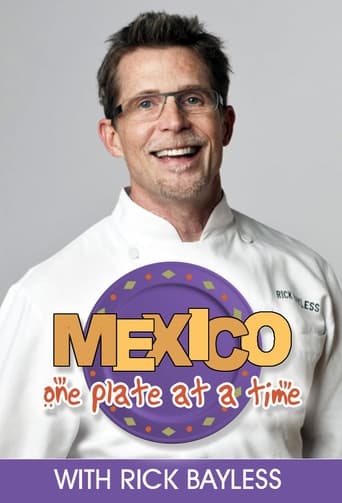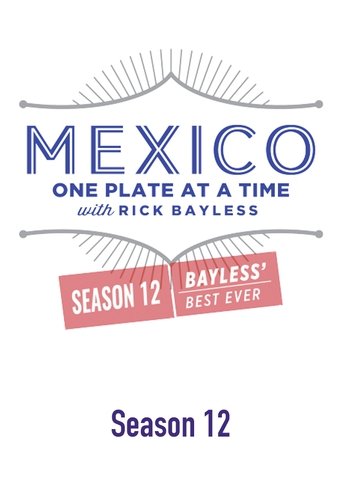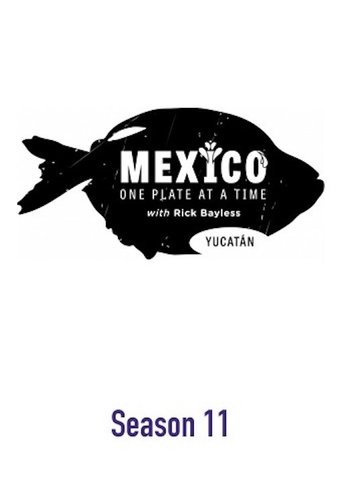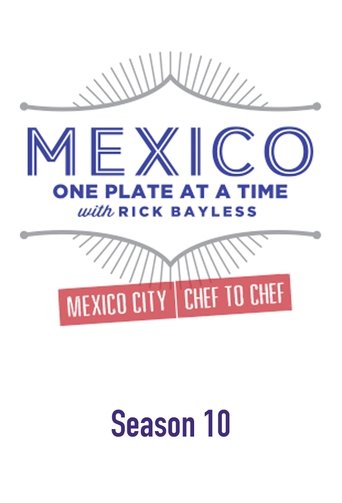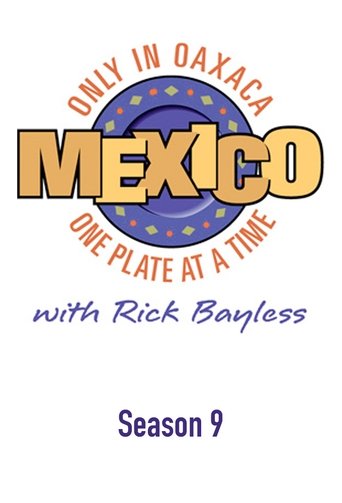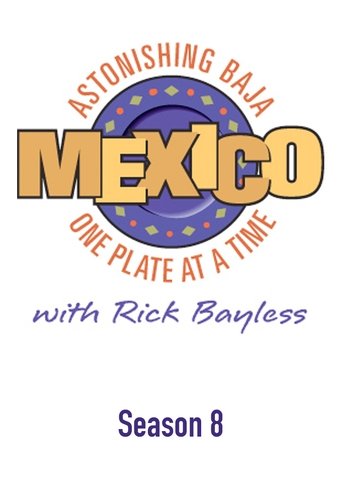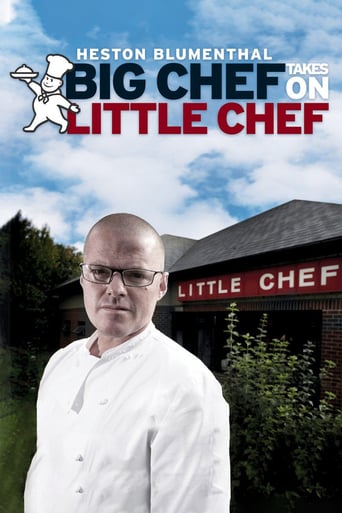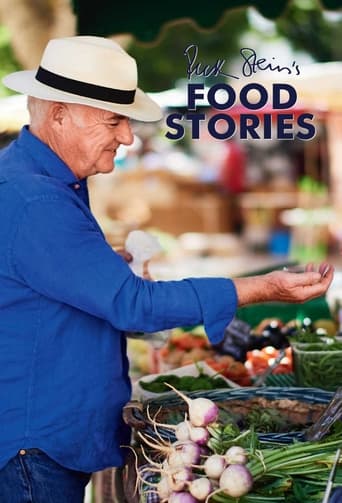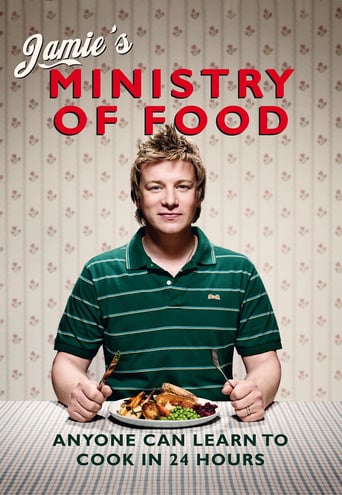Mexico: One Plate at a Time Season 5
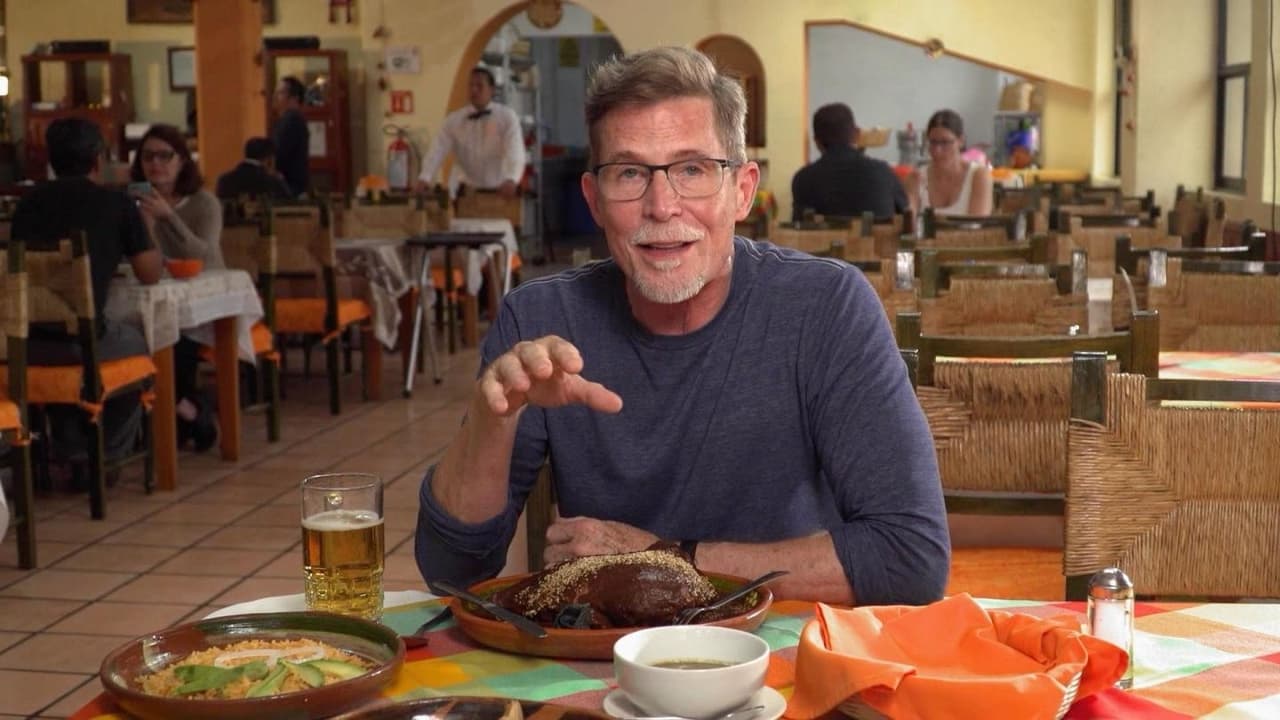
Rick Bayless, the beloved chef and restaurateur, seamlessly weaves together techniques, recipes, cultural musings and off-the-wall surprises. Throughout the series, Rick translates his Mexican travel adventures into unforgettable parties from intimate fireside suppers and casual backyard cocktails with friends to big, boisterous bashes for 25.
Watch NowWith 30 Day Free Trial!
Mexico: One Plate at a Time
2003


Rick Bayless, the beloved chef and restaurateur, seamlessly weaves together techniques, recipes, cultural musings and off-the-wall surprises. Throughout the series, Rick translates his Mexican travel adventures into unforgettable parties from intimate fireside suppers and casual backyard cocktails with friends to big, boisterous bashes for 25.
Watch Trailer
Mexico: One Plate at a Time Season 5 Full Episode Guide
The story of the Mexican hacienda sounds like it came from mythology—like one of those morality tales about the fleeting nature of wealth and glory. It begins with the feudal system where generations of Maya worked the fields for wealthy Spanish landowners. The era peaked in the Yucatan in the late 19th century with the world’s demand for henequen—or sisal—made from a local agave plant. Today, the hacienda is being reborn—as museums for a glimpse into the past, as production facilities for fine rums and liqueurs, and as luxury hotels. We join Rick on a field trip through the golden era of the haciendas and then go to his home kitchen to make the classic Mayan-Spanish-European fusion dishes Yucatecan Black Bean Dinner and Capered Chicken. Hacienda San Jose, a luxury resort, inspires Rick’s rendition of Achiote-Seared Shrimp.
Yucatecan honey is renowned for its glorious color and rich flavor. Rick finds it everywhere from the Merida market stalls to the breakfast buffet at an upscale hotel where the whole honeycomb slowly drips its amber syrup for ladling over fruit and cereal. At home, Rick uses the golden syrup in his Mexican-Style Granola and in the pasilla chile-spiked glaze for a sublime Grilled Rack of Lamb. On the Riviera Maya, we visit Xcaret, a nature park, for a look at the hollow-log hives of the native stingless bees so beloved by the Maya for their honey. At Hacienda Vista Alegre in Merida, honey is the main ingredient in a honey-anise liqueur called Xtabentún. Rick leads us through the liqueur-making process then goes home to make a fabulous White Chocolate Ice Cream flavored with the liqueur.
How do you transform a simple piece of fresh fish into a gorgeous Yucatecan specialty? It’s all in the magic paste, says Rick, as he takes us to the Merida market to explore the region’s colorful, aromatic essential seasoning pastes (or recados). These magical mounds of spice blends become the base for grilling rubs, the heart and soul of tamales, the seasoning for all kinds of food wrapped in banana leaves and the flavoring undercurrent for tangy escabeches and slow-simmered stews. We journey from an achiote tree to the commercial grinders for the seeds to Rick’s home to understand this aromatic, alluring spice so beloved in the Yucatan. Rick shows us how to make our own Achiote Seasoning Paste, and then use it for Short Ribs Kabik. Then we make the garlicky “Bistec” Seasoning Paste to use in the stunning dish of Grilled Chicken in Escabeche.
Rick finds wandering through the ancient Mayan ruins of Uxmal a humbling and inspiring experience. The Mayans built a great civilization with pyramids, temples, plazas and breathtaking expanses. And their spirit lives on—and it’s experiencing a rebirth in the Yucatan today—in revitalized food, art and architecture. We get a glimpse of the rebirth at Los Dos, a cooking school in Merida, run by David Sterling, which specializes in classic Mayan food updated for this century. Rick joins David at his beautiful school as he teaches his chilled version of Sopa de Lima topped with a panucho of lime-marinated chicken salad. Then we look at the high-style of the Riviera Maya from the rooftop of the ultra-modern Hotel Básico in Playa del Carmen. Back on the ground in Merida, the cuisine of Nectar Restaurant soars. This ultra-modern dining room with its open-air kitchen is run by two chefs that study with some of the most inventive rule-breaking chefs in the world.
Who wouldn’t like to snack from dawn to dusk on all kinds of Yucatecan specialties? Just ask Rick and Lanie for some noshing tips. They start their adventure on the main square in Merida smack in the middle of the local, nightly dance-a-thon surrounded by food vendors. They both fall under the charms of Marquesitas, a crispy wafer rolled around cheese and cajeta. Rick shares the recipe with us from a confidenciales chair—the unique park bench designed for whispering secrets to your loved one. The journey continues as they indulge in early morning treats including tortas, panuchos and impossible cake (chocolate cake topped with flan) from the Santa Ana market. Inspired, they make Salbutes (corn tortillas topped with tangy shredded chicken) in their home kitchen. At Eladio’s, a centro botanero (a lively restaurant that serves small plates) in downtown Merida, they enjoy the dancing and a whole table filled with snacks and Dzik, lime-marinated shredded beef.
Rick defies the old adage to never shop when your hungry—he always shops hungry, to provide a source for inspiration. In the Merida market, inspiration comes in the form of homemade tamales—made from fresh corn masa flavored and filled with achiote-seasoned chicken or pork and steamed in banana leaves. Those tamales tap into Mexico’s past which is present everywhere you travel. At Uxmal’s Pyramid of the Magician, Rick gives us a brief lesson on water and corn which brings him back to the Mayans and their pit-cooked tamales. To learn their secrets, we visit Silvio Campos’s home for a step-by-step class in muchipollo—rustic chicken and pork tamales baked in an earthen pit. Silvio serves the crusty-hot tamales to Rick with slivers of fresh habanero and ice cold beer. The aroma of the achiote motivates Rick to make Tamales Colados (Yucatecan Pudding Tamales) at home. Fresh chaya leaves in the Merida market inspire Rick to experiment with growing his own chaya in his urban garden.
More people visit the Yucatan peninsula than any other region of Mexico. They mostly come for the fun and the beaches while Rick comes for the cool angle, the story behind the story, the local food and the people. The adventure begins in Playa del Carmen when Rick hooks up with our other favorite Public Television chef, Jacques Pepin. Jacques invites Rick to cook in his vacation home in Playa, but first they enjoy a bite to eat at Jacques’ favorite breakfast spot. Then they head to the beach in search of really fresh fish and to debate the merits of barracuda. After a stop at Jacques favorite local market for produce and chiles, the cooking begins. Rick prepares a salad of grilled cactus, chaya leaves and arugula to top red chile-seared mahi mahi. Jacques sprinkles cumin and Mexican oregano over his pargo (red snapper), grills it whole, and then serves it with his version of a chopped tomato and avocado salsa.
By now the secret is out: Rick has a sweet tooth. For everything from ripe fruit to homemade candies to luscious pies. And when he travels to Mexico, he’s on the prowl for it all—lucky for us. We visit 100% Natural, a favorite stop in Playa Del Carmen for tropical fruit juices, creamy yogurt shakes and exotic fruit plates. At home, Rick transforms Mexican papaya into a surprising dessert he calls Caramelized Papaya with Mexican Cheese—think of a tropical version of apple pie with cheddar cheese. Which brings us to pie! Rick reminisces about (and enjoys a piece of) the coconut pie at Alberto’s Continental Patio Restaurant in Merida. These days he gets his coconut fix from a fast version of the classic sweet candy Cocadas Horneadas using frozen shredded coconut. In Tixkokob, a local cook teaches us her ethereal version of sweet baked meringues which brings us back to pie. Rick whips up a Mango-Lime Meringue Pie sure to inspire cooks everywhere.
There’s nothing like a tall glass of fresh-squeezed orange juice—naranjada—it’s called in Mexico. Rick takes us on a citrus groove to learn the ins and outs of fresh juice in savory, lip-smacking dishes throughout the Yucatan. We journey to the huge citrus market in Oxkutzkab for a sweet and sour lesson on the lime family tree—from limón to lima the classic aromatic citrus fruit used to make Sopa de Lima (Classic Yucatecan Lime Soup with crispy tortillas). Lanie teaches Rick a thing or two about the local avocadoes —from the Noche Buena variety to the Lagunero. At home, they make an Avocado-Mango Salad with a fresh lime juice and pumpkinseed dressing. Then Rick takes us to Tutul Xiu Restaurant in the small town of Maní for their renowned Poc Chuc—quick-grilled thin pieces of pork marinated in sour orange and served with all kinds of crunchy garnishes.
Cochinita pibil. Yucatan’s slow-cooked, banana leaf-wrapped pork specialty that never ceases to inspire Rick, whether he’s made it in his slow-cooker, home oven or restaurant kitchen. For Season 5 of Mexico—One Plate at a Time, Rick takes the inspiration to its pinnacle: he digs a pit in his urban backyard, lines it with bricks, builds a big fire, then slow-cooks a whole pig the old-fashioned way. Good thing he invited the neighbors for dinner! We start out with a visit to the small town of Tixkokob to learn the secrets from Silvio Campos, a local pit master known for his Slow-Roasted Achiote Pork. Hint: Don’t forget the banana leaves and be sure to cover the pit well. At home, Lanie Bayless lets us in on her secret weapon (a food processor) to easy Pickled Red Onions and Roasted Habanero Salsa. Once the heavy labor is finished, Rick marinates his pig with plenty of achiote and lime juice before he buries it in the backyard.
Water is a precious source of life—especially in the Yucatan jungle where there are no rivers or lakes. Rick goes deep, underneath the limestone bedrock, to show us the underground rivers and cenotes (sink holes) found throughout the peninsula. For the Mayans, these holes were freshwater wells they considered sacred. Today, we can explore them up close and personal with a bit of snorkeling gear. Being in all that water makes Rick hungry for one thing—seafood. So he goes topside to deep-sea fish and then enlists the help of a local fisherman to turn his catch of the day into a beachside Ceviche. When deep-sea fishing is not in the cards, Rick takes us to the Merida market for a tour of the prepared seafood offerings including Shrimp a la Vinagreta. To complete his inner beach vacation, we enjoy spiny lobster on the Riviera Maya at the beachside restaurant Oscar y Lalo’s. The journey ends in Rick’s backyard grill for stunning version of Lobster with Smoky Garlic Mojo.
There are days when you want to take it easy and enjoy your favorite comfort food. Others, you just have to turn up the volume. For Rick, that means breaking out the chiles—everything from the Yucatan’s beloved habanero with its one-two punch of flavor and heat, to the tamer hot yellow xcatic chiles. Rick turns a bumper crop of habaneros into Vinegary Hot Sauce, Tomato Frito and Xnipec Salsa and then shows how they all pair well with grilled fish! We visit the Merida market for a fresh chile lesson, explore the limestone fields where the habaneros thrive and then hold our breath for a spicy tour of a habanero hot sauce factory. At the Bayless home, chiles are just as likely to show up on scrambled eggs as they are in pot roast. Rick makes a mouthwatering version of Pot-Roasted Pork with yellow chiles, plantains and a hint of brown sugar.
At one time, the henequen trade made Merida, the capital of the Yucatan, one of the richest cities in the world. Today, its lovely white stuccoed buildings remind us of its opulent past. A horse and carriage ride down the Paseo Montejo will help you understand why Merida was once known as “The Paris of Mexico.” Rick takes us on a journey through the Merida market stalls for a look at the blending of Mayan traditions with the Spanish influences. Dishes such as Sikil Pak, a pumpkinseed dip with habanero is totally Mayan, yet still part of Merida’s meals today. The market’s meat stalls jump-start Rick’s surprising roller coaster ride through Merida’s food history from simple pork Picadillo to the baroque Queso Relleno (stuffed cheese) found in all the classic Yucatan restaurants. Along the way, we explore the Lebanese influence on this colonial city where thousands of locals dance in the town square nearly every night of the week.
Free Trial Channels
Seasons


